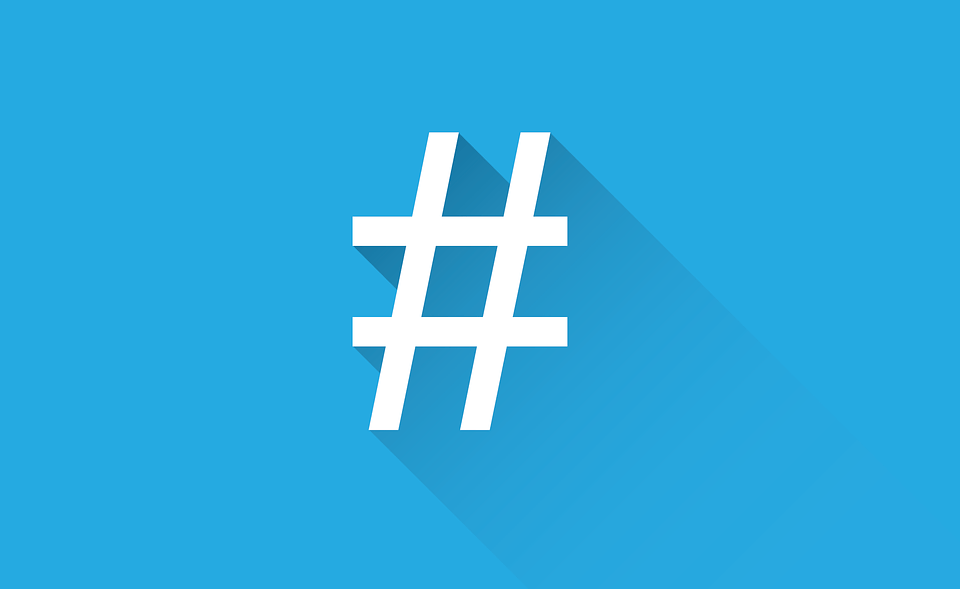The best way to get noticed on social media is by using a hashtag. A hashtag, or the pound sign (#), turns any words behind the symbol into a searchable link on social media platforms to organize content based on the key words. Whether on Instagram, Twitter, or Facebook, the hashtag is used to discuss some of the most hilarious topics (#thanksgivingwithblackfamilies) to some of the more serious issues (#blacklivesmatter). While the courts are still catching up with this emerging area of intellectual property, the United States Patent and Trademark Office (the “USPTO”) has begun to register hashtags as trademarks.
The USPTO added a section about the inclusion of hashtags to its Manual of Trademark Examining Procedure in 2013.[1] When deciding whether to register a hashtag, the USPTO considers four factors: (1) context in which the hashtag is being used; (2) placement of the hashtag symbol in the mark; (3) how the hashtag is being used; and (4) the types of goods and services identified.[2]
As of March 5th, 2016, a basic word search of the term ”hashtag” in the Trademark Electronic Filing System (“TESS”) revealed over 500 live marks. These include #doyouspeakbalmain[3] and #balmainarmy[4], both registered by the iconic Parisian fashion house Balmain in classes covering clothing, jewelry, and leather goods. On Instagram, #doyouspeakbalmain has over 1,000 images connected and #balmainarmy has over 58,000 images of celebrities and fashionistas in Balmain, including Beyoncé, Lupita Nyong’o, and Kylie Jenner. These examples are just two of the many that show hashtags are becoming a valuable asset for social media and marketing campaigns.
Recent decisions show that the law concerning trademarking hashtags is an emerging issue, especially considering there are no circuit court cases. In Eksouzian v Albanese, both parties sold electronic cigarettes.[5] The plaintiff sued to enforce a previous settlement agreement. The defendants responded by saying the plaintiffs materially breached the settlement agreement because the plaintiffs used #cloudpen and #cloudpenz in Instagram posts and in other marketing. The United States District Court for the Central District of California used the rule stated by the USPTO TEMP to resolve this issue. The court held that the plaintiff did not breach the settlement agreement because #cloudpen was used descriptively to direct consumers to a general location with other relevant content, and thus #cloudpen could not be trademarked.[6]
Eksouzian can be interpreted either very broadly or narrowly. If other courts interpret it very broadly, then the use of hashtag marks on social media may not have any enforceable value. This would be detrimental to brands because anyone could use an organization’s hashtags for categorization on social media. If Eksouzian is interpreted very narrowly, it would solely apply to the facts of this case and all future cases will be analyzed on a case-by-case basis. Trademarking hashtags may be clarified as Ezkouzian and other cases are decided on appeal.
Other recent decisions provide little clarity on the issue of trademarking hashtags. In Fraternity Collection, LLC v Fargnoli, the United States District Court for the Southern District of Mississippi held that using hashtags on social media could deceive consumers when hashtagging a competitors name or product.[7] A clothing company sued a former designer who used the same terms #fratcollection and #fraternitycollection to market designs she made for a company and later when she worked for the company’s competitor. In another recent case, the United States District Court for the Southern District of New York dismissed Louis Vuitton’s suit against My Other Bag for tagging images of its canvas bags on social media.[8] Louis Vuitton alleged trademark infringement and dilution because the canvas tote bags depicted a sketch of a Louis Vuitton bag on one side and the words “my other bag” on the other side and were tagged on Instagram with the hashtag “#lousivuitton” and “ #lv.”[9] The court held that My Other Bag’s use of Louis Vuitton’s mark was a parody and did not confuse consumers.
Brand awareness combined with a concerted social media campaign leveraging a hashtag can make getting followers and likes on social media easy. Registering and protecting the hashtag as a trademark, on the other hand, is more difficult. Adding a #hashtag to a generic or merely descriptive search term will likely not prove sufficient for registration with the USPTO. If the #hashtag is used as a source identifier in social media posts and other advertising, and consumers recognize the source, however, the USPTO is much more likely to register the hashtag as a trademark.

